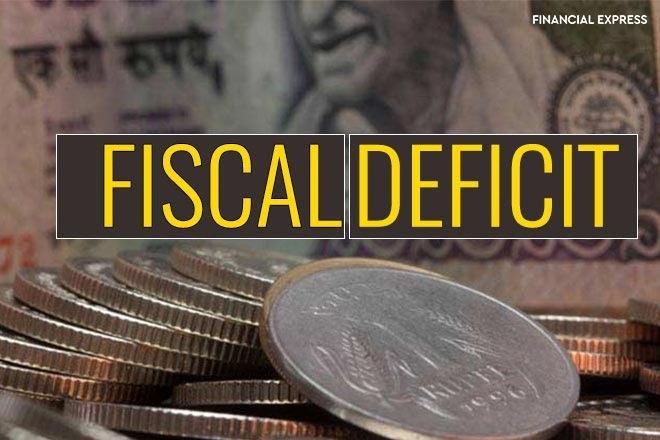Fiscal deficit 2019: India’s fiscal deficit in the first two months of the financial year 20118-19 reached a whopping 55.3%, yet lower than previous year’s 68.3% mainly on account of robust growth in the indirect tax collections, which helped in offsetting higher oil import bill, experts said. India reported a fiscal deficit of Rs 3.45 trillion ($50.37 billion) during April-May period or 55.3% of the budgeted target.
Net tax receipts in the first two months were Rs 1.02 trillion, the government data showed. “Fiscal deficit for April-May 2018 recorded a welcome Y-o-Y decline on the back of robust growth in indirect tax and non-tax revenues and near stagnant revenue spending, allowing for a healthy rise in capital expenditure in the early part of the year,” Aditi Nayar, Principal Economist, ICRA told FE Online.
The GST collections touched Rs 7.41 lakh crore in August 2017- March 2018 period, averaging around Rs 92,600 crore. In the month of March, the GST collections even crossed Rs 1 lakh crore mark on the back of year-end accruals.
The Narendra Modi government has vowed to trim the fiscal deficit to 3.3% of the total budget and reiterated the same several times in last few days. Even Prime Minister Narendra Modi recently said that the government is committed to its 3.3% fiscal deficit target despite 2019 being an election year. In the FY18, the government met its revised 3.5% fiscal deficit target.
While the fiscal data so far seem comforting, Aditi Nayar warns that the adequacy of the budgeted outlays for the proposals introduced in the Union Budget for FY2019 such as MSPs and the National Health Protection Scheme (ModiCare), fuel and other subsidies, and bank recapitalisation, would affect the fiscal space for spending over the course of the year.
A Moody’s Investors Service report said that 3.3% fiscal deficit target is not unachievable at the end of the year if the government prunes some of its capital expenditure. “India may stick to the estimated fiscal deficit of 3.3 per cent of GDP and even cut capital expenditure to offset any slippage from the budgeted target,” the firm had said.


